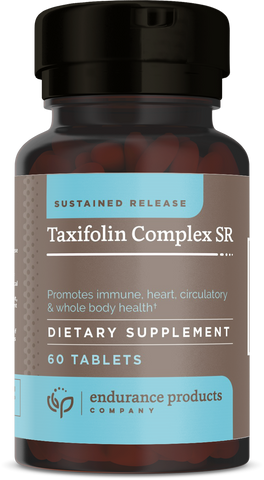Lately, we have all been more interested in keeping our immune systems strong. Sales for immune-boosting supplements have skyrocketed, according to research. Quercetin, dihydroquercetin and taxifolin are supplements that support a healthy immune system, so there’s been and increase in news, podcasts, and medical studies about them.
While they have similarities, quercetin and dihydroquercetin (DHQ) are quite different, which may be confusing. This article explains the similarities and differences of quercetin, dihydroquercetin and taxifolin to clear up confusion. It also discusses how dihydroquercetin may support the body’s antioxidant defenses and may help you maintain a healthy immune system.*
Read on to learn more about these powerful supplements and decide what’s right for you.
Quercetin – A Powerful Flavonoid and Antioxidant
To begin, quercetin and dihydroquercetin are both flavonoids. Flavonoids are plant pigments found in many foods and plants such as citrus plants, tea, red wine, richly colored berries, and even dark chocolate. They can even make vitamin C even more potent and longer lasting in the body.
Flavonoids comprise about 60% of the 8,000 known polyphenols, the plant compounds that act as antioxidants in your body, fighting harmful free radicals. Without enough antioxidants protection to neutralize excess free radicals, they can damage your cells.
The first difference between quercetin and dihydroquercetin is that they tend to come from different plant sources. Quercetin is found in the bitter, fuzzy inner rind of citrus fruits, other fruits like cherries and apples, vegetables like kale and broccoli, seeds, grains, and red onions. Dihydroquercetin, also known as taxifolin, is commonly found in onions, milk thistle, grapes, green tea, olive oil, and the tree bark of some conifers.
Dihydroquercetin – More Potent and Bioavailable than Quercetin
The biggest difference between dihydroquercetin and quercetin is that they have different chemical makeups. Dihydroquercetin has two additional atoms of hydrogen per molecule, which makes it a more powerful antioxidant, according to pre-clinical studies.
We offer a specific, patented dihydroquercetin known as Lavitol® (DHQ) Taxifolin, which is made from Dahurian Larch trees and differs greatly from other larch-derived ingredients such as arabinogalactan. We chose Lavitol® (DHQ) Taxifolin because it’s derived from a high-quality, standardized larch extract with an extensive safety profile.
We also like that the production of Lavitol® (DHQ) Taxifolin is environmentally responsible. It’s made from harvested tree stumps left after logging, which clears areas for sapling replanting. The stumps are turned into sawdust and the active ingredients are extracted. Lavitol® DHQ is tested for contaminates, residue, pesticides, and heavy metals as well as for the potency of DHQ.
Our supplement, Taxifolin Complex SR® (Sustained-release), combines Lavitol® DHQ, highly bioavailable zinc bisglycinate, and high-potency vitamin C. These nutrients are released gradually, over 5-7 hours, thanks to our one-of-a-kind vegetable wax tablet core (matrix). The extended release of nutrients allows for optimal absorption and tissue retention, mimicking the way our bodies process food.*
“There are a lot of different reasons someone may consider taking it,” explains Dr. Martin Milner, naturopath, and CEO and medical director of the Center for Natural Medicine. “First and foremost, it’s a highly-absorbable, potent antioxidant. Antioxidants not only need to be strong, they need to circulate throughout your body for the whole day. So, if you’re taking a slow-release antioxidant, it circulates in your body all day. Additionally, it’s incredibly adaptogenic and affects many different systems in the body. It’s amazing how many different systems in the body have been studied and have responded.”
How do Vitamin C, Zinc and Dihydroquercetin Work Together?
Taxifolin Complex SR® may help you take antioxidant protection and immune defense to the next level. Vitamin C helps neutralize free radicals in the body, including the cells that line your blood vessels (endothelial cells). In your blood, vitamin C also helps recycle and reactivate vitamin E, another antioxidant.
Both vitamin C and zinc may help you maintain healthy protective membranes that line the nose, mouth, throat, and intestinal tract. Vitamin C also plays a role in the production and activation of key immune cells, helping to ensure healthy inflammatory responses and protect the integrity of the skin and underlying capillaries.*
Zinc also protects cells from oxidative damage. It helps your body maintain the optimal function of several immune cells. These include neutrophils, natural killer cells, and T-lymphocytes, which are types of white blood cells that are part of the body's first line of immune defense.
Taxifolin may also exert its antioxidant effects by helping to recycle and reactivate vitamin C, based on pre-clinical research.
Emerging research also shows that taxifolin may be better able to protect capillary function than regular quercetin, because of its special chemical configuration.* Together, these nutrients have many benefits in the body. They may help you maintain a healthy heart, healthy circulation, and healthy immune defense.*
“Water soluble nutrients don’t last very long in your system. Their half-life is not very long,” Milner explains. “So, it’s a wonderful enhancement of therapeutics to have slow-release products that can be manufactured from water soluble nutrients like taxifolin. It’s formulated to last long and last evenly, so you have continuous protection.”
Benefits of Dihydroquercetin (Taxifolin)
Exploring the potential health benefits of taxifolin is an active area of research. Emerging laboratory research suggests taxifolin may help:
- Support cardiovascular health*
- Maintain healthy blood pressure in the normal range*
- Support healthy blood lipids*
- Support healthy circulation*
- Support immune health and function*
- Support liver health*
- Support respiratory health*
- Support healthy nerve function*
- Support antioxidant defenses*
We hope this article helps you have a better understanding of the differences between quercetin and dihydroquercetin (taxifolin) so you can decide if it's right for you.
As with any dietary supplement, we recommend that you talk to your doctor before taking Taxifolin Complex SR® if you have or suspect a medical condition, are taking any medication or are pregnant, planning to become pregnant, or nursing.

